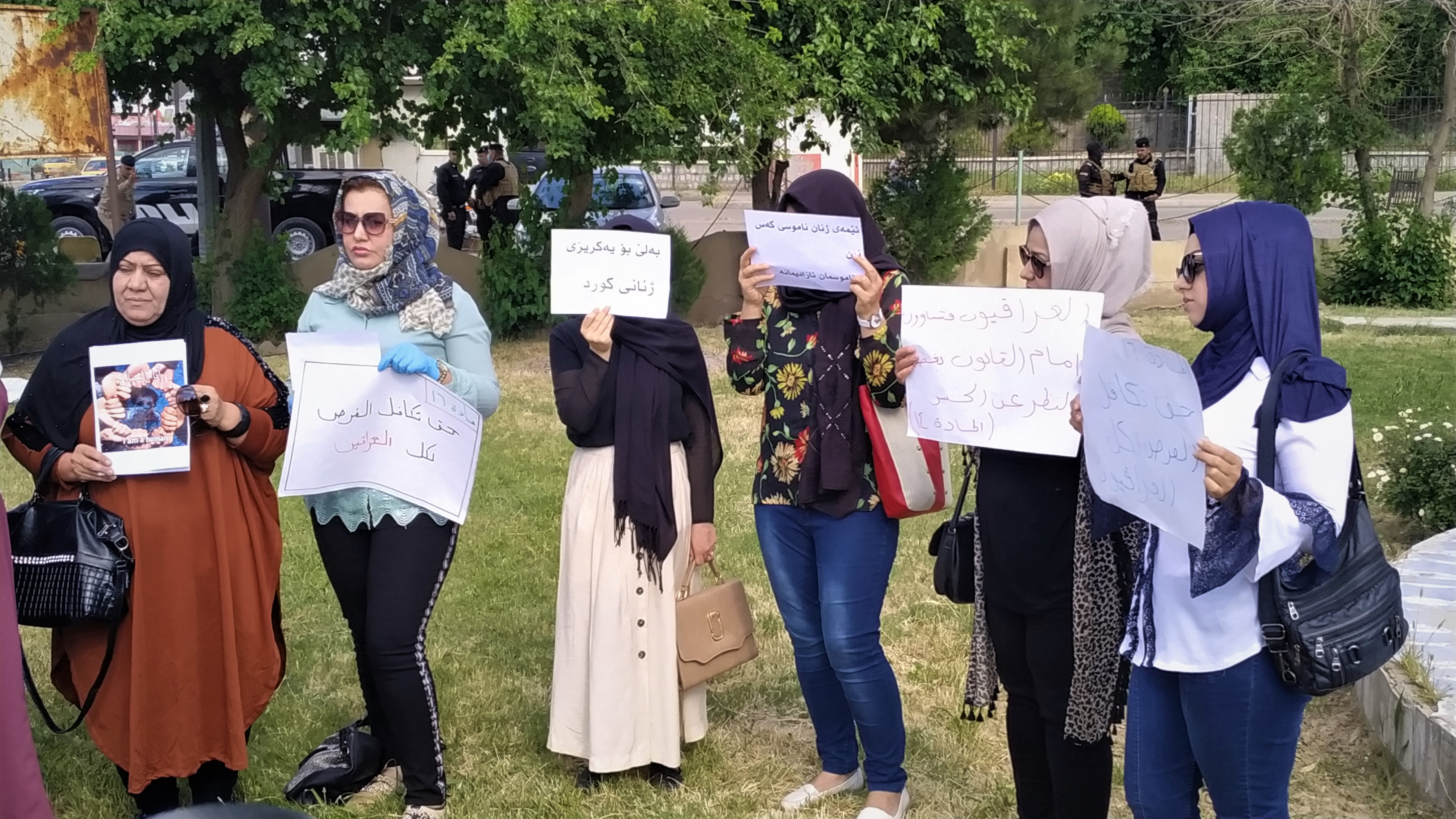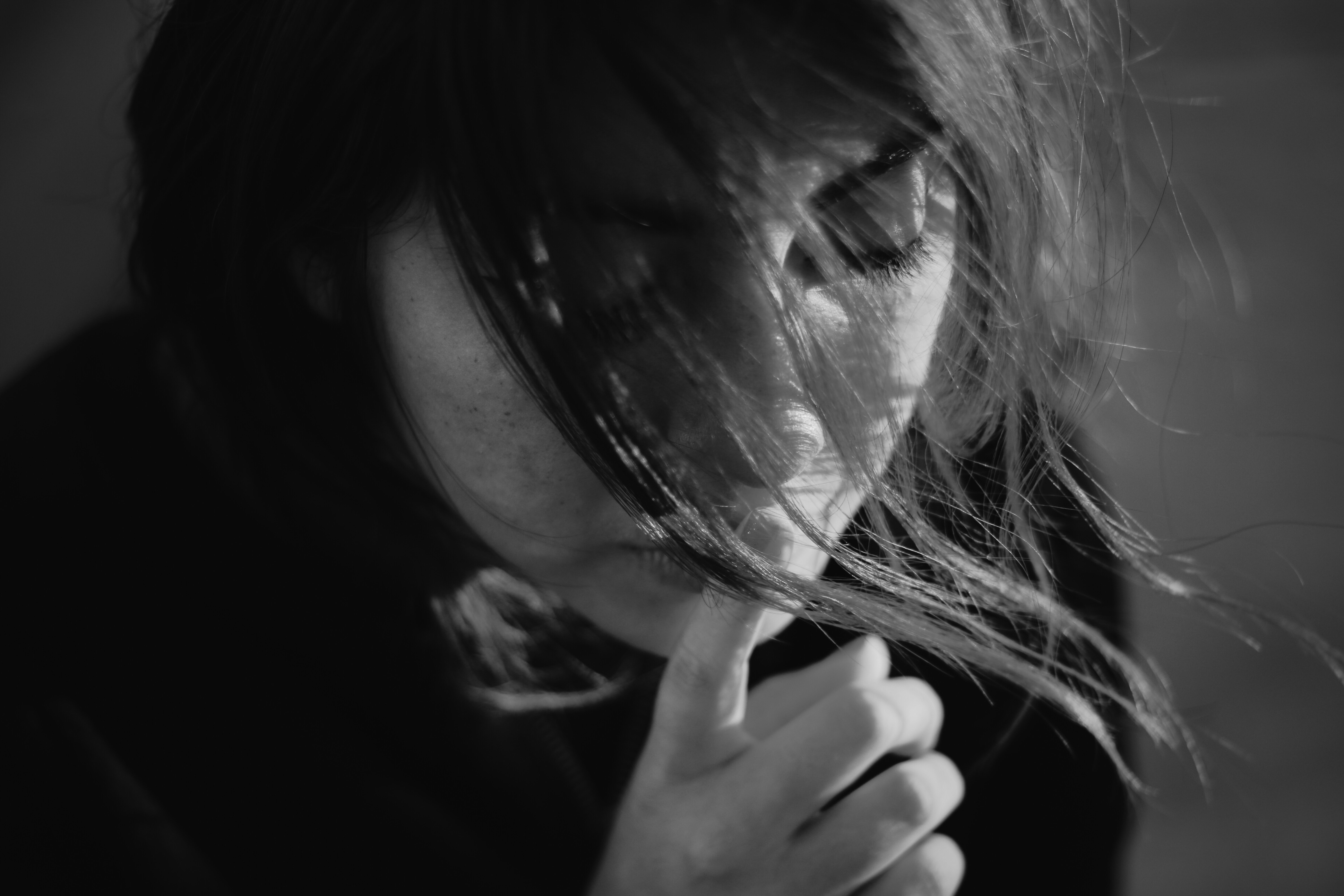The national coronavirus lockdown has fueled a wave of violence in the households, in which women as always have the lion's share of the surge.
Household violence during the COVID-19 pandemic has increased around the globe, but in the Iraqi context it has reached the degree that the United Nations Assistance Mission for Iraq (UNAMI) “raises the alarm.”
UNAMI, in a statement issued in April, expressed its concern about the rise in gender-based and domestic violence, including “the rape of a woman with special needs, spousal abuse, immolation and self-immolation as well as self-inflicted injuries due to spousal abuse, sexual harassment of minors, and suicide due to domestic abuse among other crimes.”
A primary reason for the surge of violence against women, the statement indicates, is attributed to the novel coronavirus lockdown, in which people remained indoors.
Five women “have committed suicide” only in the oil-rich province of Kirkuk, in different ambiguous situations, according to date KirkukNow obtained.
The latest self-immolation took place on April 19 in Darwaza neighborhood, when a 19 year- -old girl “took her life”, a source from Kirkuk Police Department told KirkukNow and reaffirmed that “the investigations are ongoing.”
The humanitarian and human rights organizations refer household tensions to financial status, and psychological stress are the reasons for the suicide of women or their murder.
The cases has increased to seven, which is a dangerous escalatio
Sajad Jumma, head of the office of the Iraqi High Commission for Human Rights (IHCHR) in Kirkuk, said that, “from early (2020) to mid-March, we only had two cases of women suicides, but during the lockdown, in which the families were confined to homes, the cases has increased to seven, which is a dangerous escalation.”
“We cannot claim that these cases are all suicides,” he added.

Kirkuk, women protest against rise of violence, April 2020. Photo: KirkukNow
The federal government enforced a national lockdown to prevent further outbreak of the virus, compelling people to remain in their houses.
The curfew has paralyzed the efforts of the government and the humanitarian organizations to support the underprivileged across the country.
Vyan Sabir, the Program Officer of the People’s Development Organization (PDO) in the Garmyan area, said that, “we stopped working during the lockdown, but we could not remain at home because our duty is to solve and follow up the problems of women.”
The PDO has provided the Internally Displaced Persons (IDPs) and other groups in the community with a helpline number with an ongoing awareness-raising on social media.
Women were subjected to more cruelty
“Violence against women has increased under quarantine… women were subjected to more cruelty… our organization only has received nine severe abuse cases and we’re busy with solving them,” Sabir said.
There are no women shelters in most parts of the country, except for its capital Baghdad and the northern Kurdish region.
According to the data by Nineveh Judicial Council, 85 cases of domestic violence were recorded in the province during the lockdown.
Amir Ruba’i, a judge at the Court of Investigation in the west of Mosul, said the filed complaints were transferred to the investigate judge in charge of domestic violence to proceed them.
The Iraqi constitution prohibits domestic violence, but yet particular laws dealing with the issue to be passed by the Iraqi Council of Representatives. However, the Kurdistan Region has already endorsed the law of combating domestic violence.
Fryad Hedayat, the spokesperson for the directorate of combating domestic violence in the Garmyan area, said, “during the lockdown, our door was open to solve any issue.. but the court was on halt.. the judges either decided on the case through phone calls or the documents of the cases were taken home to them.”
Hedayat said he believes that domestic violence has decreased during the COVID-19 lockdown, adding that in February, they received 50 cases of abuse, while the cases dropped to 30 in March, when the national lockdown was imposed.
Iraq does not have any bureaus to collect and publish statistics on the nationwide domestic violence.
A 20-year-old married women died in a hospital in the city of Najaf after committing “self-immolation.”
The mother of the victim told the Human Rights Watch (HRW), explaining that “her daughter told her that her husband had beaten her so badly on April 8 that she poured gasoline on herself and warned him that unless he stopped, she would light herself on fire.”
“I still don’t know if he lit her on fire or she did it herself, but she told me she burned for three minutes while he just watched, and finally his father, also a policeman, came in and put out the fire,” the mother told HRW.
I still don’t know if he lit her on fire or she did it herself
Najaf local administration has formed an investigative committee but the outcomes are yet to be revealed.
Lawyer Ahang Anwar, head of Vyan Organization for the Rights of Women and Children, said that, “we cannot say that the women, who commit suicide, have decided on their own because everyone loves life. However, It’s obvious that before they made the decision, they had been under family pressure, or they were subjected to violence, which consequently led to suicide.”
Numerous women rights organizations protested against the surge of violence against women on April 27 in Kirkuk and submitted several requests to the Iraqi president, speaker of parliament as well as the prime minister.
The requests included a hotline number for women, the reconstruction of the rehabilitation hospital for women, strengthening the measures combating violence against women, allocating more employments to women in the police force to supervise the cases.
Sleman Anwar, the program officer of the German Haukari Organization in the Garmyan area, said, “we halted our previous activities and moved to the camps because they lack medical protective supplies, aid, and awareness.”
Anwar added that beside having lawyers for the domestic violence cases and advising the women, they also followed up violence against women in Khanaqin, Kifri, and other areas in Garmyan.
On the eve of May 1st, 2020, five girls were found in a house in Kirkuk, who were hand tied and tortured as well as used for human trafficking by a band, a source from the police department told KirkukNow.
The source added that a mother and her son were in charge of the band. The mother was arrested, but the son has fled.
Kirkuk, activities of women organizations on the Women’s International Day, March 8, 2020. Photo: KirkukNow
The UNAMI in its April statement “urges the Iraqi parliament to speed up the endorsement of the Anti-Domestic Violence Law amid alarming reports of a rise in gender-based and domestic violence cases perpetrated across the country.”
The anti-domestic violence law has trapped in the council of representatives and is yet to be passed due to the disagreement of parliamentary blocs.
Wahda Jumaili, a member of the human rights committee in the council of representatives, has told HRW, “some members blocked the law because they do not believe that the state should punish honor killings or parents’ corporal punishment of their children.”
Some members blocked the law
While Iraq lacks an anti-domestic violence law, section first of article 41 of the Iraqi Penal Code, allows “the punishment of a wife by her husband,” considering it “to be in exercise of a legal right.”
The section has been used as a justification for the violence against women, while the Iraqi supreme court in 2019 refused that such a section enables demoestic violence.





